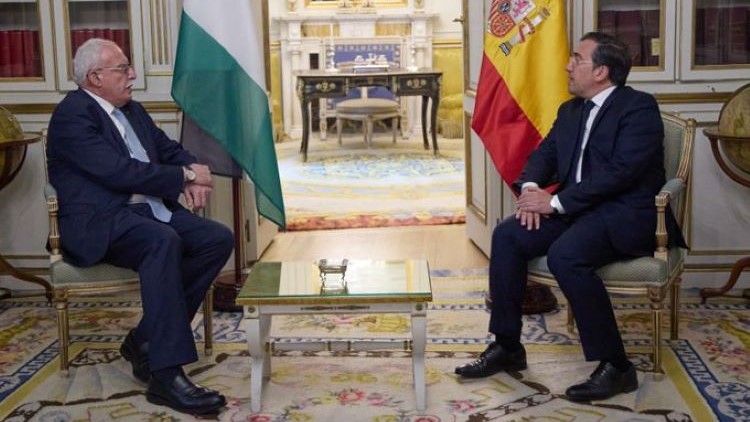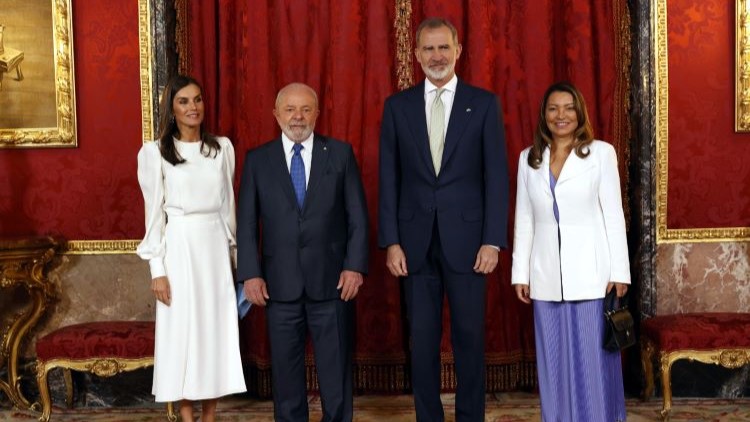The Diplomat
The Minister of Foreign Affairs, José Manuel Albares, received yesterday in Madrid his counterpart from the Palestinian Authority, Riad al Malki, to whom he reiterated Spain’s support for “the two-state solution to achieve peace in the region”.
“I receive in Madrid my Palestinian counterpart, Riad Al Malki, to go over bilateral and cooperation relations and the regional situation,” Albares stated through his official Twitter account. “Spain is committed to the two-state solution, which is necessary to achieve peace in the region,” he added. The meeting took place late in the afternoon at the Ministry’s headquarters and no further information was given other than the aforementioned tweet.
The meeting with Al Malki came just a day before the visit to Spain of Israeli Foreign Minister Eli Cohen, the first in thirteen years by a head of Hebrew diplomacy. Palestinian foreign portfolio holders travel much more frequently to Spain than Israeli ones and Riad Al Malki himself was already in Madrid in July last year. On that occasion, Albares also reiterated Spain’s support for the “two-state solution”. Eli Cohen, who took on the post in December, already had the opportunity to talk with Albares last January, during the Davos Forum.
The two visits take place a few months before Spain takes on the six-month Presidency of the Council of the European Union and, in fact, the purpose of the visits of Al Malki and Cohen is to hear from Albares whether Spain has any proposal for the EU-27 to become more involved in the search for a solution to the conflict.
In any case, the government of Pedro Sánchez does not seem to have the Middle East issue among its priorities for the presidency, since the United States is not playing as active a role as in previous times, and has limited itself, time and again, to reiterating its support for the two-state solution as the only possible response to the aspirations of both sides.
For example, last February, the Spanish Ministry of Foreign Affairs expressed its rejection of Israel’s decision to expand settlements in the occupied Palestinian territories with the construction of 10,000 housing units and the legalization of nine settlements, a “unilateral” measure which “distances the perspective of the two-State solution”. In that communiqué, the Government recalled that the two-State solution is the “only satisfactory response to the legitimate national aspirations of Palestinians and Israelis, and a key element for peace and national security”.







